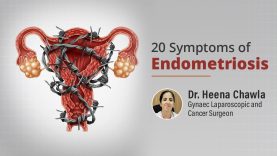Dr. Rachna Abrol
Dr. Rachna Abrol
AMH Test: What is AMH test & Why is it important?
Dr. Rachna Abrol, Consultant Obstetrician and Gynecologist, discusses the need for AMH test or Anti-mullerian hormone tests during pregnancy. In addition, she has also addressed questions like who needs it and the appropriate time for this test.
What is the AMH test?
The test tells about the reserve of eggs in the female’s ovary.
Who needs the AMH test?
Usually, females seeking treatment for infertility or planning pregnancy do this test. In addition, doctors find that lower levels of AMH tests are one of the reasons for infertility in females. Therefore, doctors usually perform this test to determine the reserve of the eggs.
Does age affect the egg’s reserve?
The level of AMH starts rising in the teenage group, reaching a maximum of 25 years. With advancing age, their level starts reducing. The normal value is 1-3 nanogram per ml. So one may have a higher value if the female’s age is less than 25 or 25. And its level starts reducing by the age of 40 or 45 years.
What are the optimum levels for pregnancy?
The average levels are 1-3 nanogram per ml, but if the level drops to 0.5, there are lesser chances of pregnancy. Also, the age factor dramatically affects the quality and quantity of eggs.
Why does one need this test for IVF?
Doctors advise taking this test before opting for assisted reproductive technologies like before IVF; it can help determine the success rate.
Bottom line
AMH or Anti-Mullerian hormone test tells about the egg reserve in the female body. Its value is maximum in the teenage group but starts reducing with age. Thank you.















Comments (0)